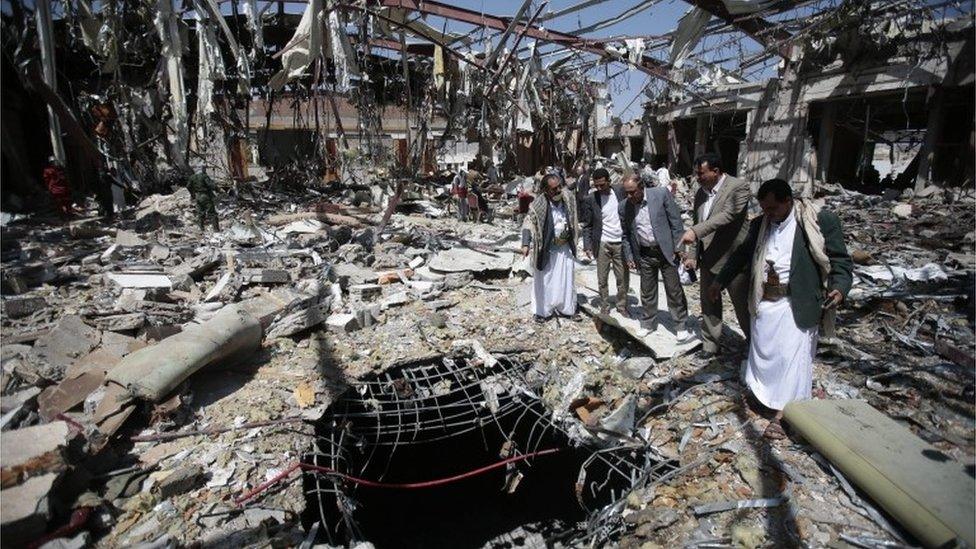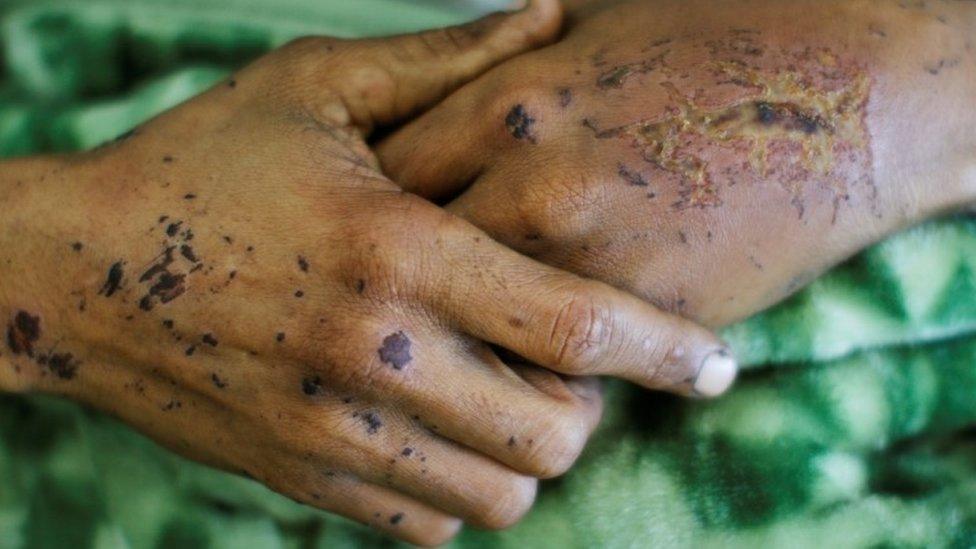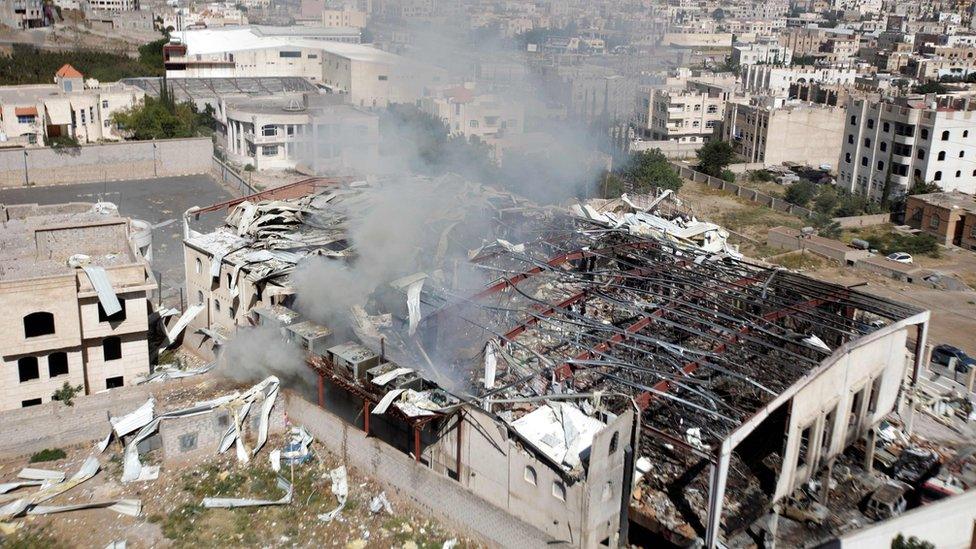Yemen conflict: Saudis blame funeral hall bombing on mistake
- Published

At least 140 people were killed in the bombing
The Saudi-led coalition bombing Houthi rebels in Yemen has said it attacked a funeral hall in the capital, Sanaa, based on "bad information".
At least 140 people were killed, most of them civilians, in the attack on 8 October - one of the single worst death tolls in the two-year conflict.
An inquiry blames "non-compliance with coalition rules of engagement" and "the issuing of incorrect information".
The attack was heavily criticised internationally.
The 14-nation Saudi-led inquiry, carried out by the Joint Incidents Assessment Team, said coalition aircraft were wrongly told that the funeral hall was full of Houthi leaders.
It said "a party affiliated to the Yemeni presidency of the general chief of staff" was to blame.

Several hundred people were injured in the air strike
The inquiry also apportioned blame to the Air Operation Center in Yemen for directing aircraft onto the target without obtaining approval from the coalition's command.
The investigation called for families of the victims to be compensated. An estimated 600 people were injured in the bombing.
"Coalition forces must immediately review their rules of engagement and update their procedures to ensure adherence in future," the inquiry team said.

Growing pressure to end war: Frank Gardner, BBC Security Correspondent
The findings of this Saudi-led investigation will come as no surprise and little consolation to those caught up in the devastating air strike on a funeral in Sanaa.
Already social media postings have suggested that blaming a senior Yemeni military officer for ignoring the rules is a case of scapegoating.
But for Saudi Arabia, which was already looking for ways to extricate itself from the Yemen conflict, this could be a watershed moment.
Beyond sacking those responsible for this catastrophic breach of its targeting rules and compensating the victims' families, the Saudi-led coalition is immediately reviewing its rules of engagement. Will this be enough to silence those calling for the UK and US to curb their arms sales to Saudi Arabia?
Unlikely. As long as air strikes continue over Yemen civilians will continue to die, while Houthi rebels continue to fire their missiles across the border at Saudi villages. So the pressure to end this unwinnable war is greater than ever.
One woman's lonely struggle against famine in Yemen

The conflict in Yemen pits forces loyal to the internationally recognised government of President Abdrabbuh Mansour Hadi against Houthi rebels.
The coalition led by Saudi Arabia accuses Iran of backing the rebels and supports the president.

Human Rights Watch called the air strike "an apparent war crime"
The United Nations says more than 6,000 people have been killed in the conflict, many of them civilians.
The coalition, which includes Saudi Arabia's Gulf Arab allies, enjoys logistical backing from the United States but the White House condemned the bombing and said it was reviewing its assistance.
Adding to the condemnation, Human Rights Watch said on Thursday that the air strike was "an apparent war crime" and "unlawfully disproportionate".
The UK, a major seller of arms to Saudi Arabia, is to present a draft resolution to the UN Security Council next week calling for a ceasefire in Yemen.